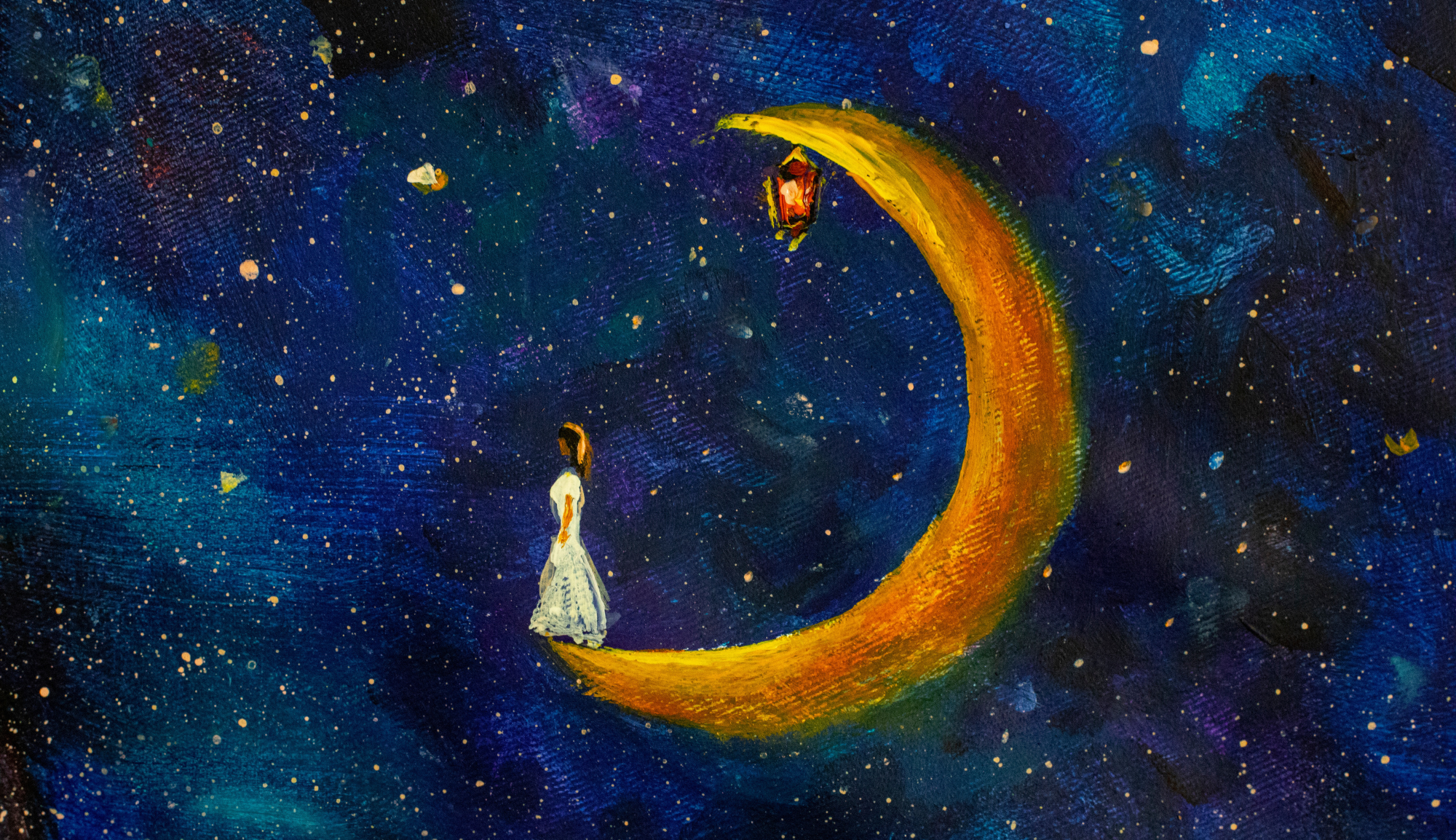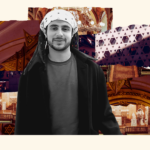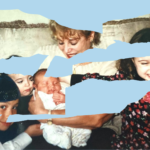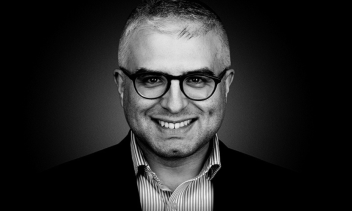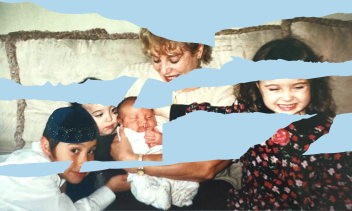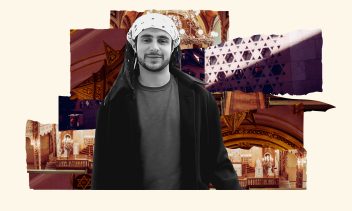“Jews are moon people,” my friend said as we strolled through Gainesville’s verdant swamp one Autumn night. She was not lecturing me on the mitzvah of Rosh Chodesh but rather on the “witchiness” of Torah.
For those unfamiliar with the lore, “witchiness” refers to the ancient witch archetype of one connected to the broader universe (not a campy green lady screaming, “My precious”). Something about the witch’s ability to transcend nature resonated with me, and I thought about the classic Midrash that righteous Jewish women merited our miraculous Exodus. Moon-centric literature, films, and music captivated me afterward because I loved learning about the power of women. I wanted to delve even deeper.
That new moon-oriented fascination became something of a centerpiece in my university studies. I read up on space travel, astronomy, science fiction, and Jungian theories on maternal connection, which were peripheral to what my friend had mentioned. When I think back now, I yearned to connect to the moon.
Eventually, my research led me to Kiddush Levana—the Torah’s monthly prescription for sanctifying the new lunar month. I learned that sanctification was likened to greeting the Shechinah, God’s Divine Presence, and ideas started to click. Then I began to learn more about halacha and Jewish practice. One mitzvah led to another, and I was suddenly thrust into a new world, fit with a new vocabulary, way of life, and blueprint of reality. The funny part is that I saw Orthodox Jewish life every day growing up, I simply didn’t notice it until I left home. When I returned, my town was like a luxury beach shtetl.
I grew up in Surfside, Florida, toward the north end of Miami Beach. While The Shul (of Bal Harbor)—now the center of one of the biggest Chabad communities—was blocks from my childhood home, Orthodoxy was at a distance. My parents were traditionalists, proudly Jewish, but not at all observant.
I always felt aggravated watching modestly dressed people slowly float through the streets on a scoldingly hot weekday afternoon, nonchalantly obstructing neighborhood traffic. I didn’t get the memo that it was a chag. (Now I am one such traffic obstructor and realize the streets are unevenly paved.)
My Jewish upbringing worked for me until I hit 16 and was overcome with questions of truth. That’s where my own Jewish story really began.
I turned to philosophers like Descartes and overvalued my ability to read his work. His assertion that “we know nothing” resonated, and in my overly analytical teenage years, I was sold on his skepticism and doubt of all beliefs.
At the time, I had innate moral convictions but did not believe there was any verifiable or reliable system to depend on for guided decision-making in living one’s life. Growing up, the Jewish people in my life were “proudly Jewish” Zionists with a love for their ancestry. “Torah” and “mitzvot” were hardly a part of my vocabulary, and there were few practices I witnessed that distinguished Jews from any other religion. Many of the people in my community boasted about our privilege and closeness, but I didn’t feel it viscerally. I yearned for genuine connection and a framework for how to live. So as a 21-year-old strolling along that swamp, my moon encounter became something of a turning point for me.
As I learned about Judaism’s sanctity of time—often measured by the moon—I became captivated by the Torah’s take on nearly every matter.
My most searched websites were Chabad and Sefaria. What does the Torah say about snow? Why are some people jealous? What respect do we owe to our leaders? There was a massive shift in how I dealt with information. Encountering events and information through the Torah lens was cathartic because I had something to rely on. I was no longer Lexi who happened to be Jewish, but Lexi whose ancestors and peoplehood meant closeness to G-d through the relentless pursuit of elevating the world.
When I first began to learn Torah, I did not fall within a denomination. Because while I desired observance, I did not know what it entailed or would demand of me. And, when I began to identify with the Orthodox community, I was ill-equipped to navigate the disparities in how I related to Judaism among my less observant friends and family. I don’t love the adage, but I didn’t know what I didn’t know.
I already believed the Torah is true. I had to accept halacha as a paradigm because I believed it would make for a more meaningful life. I want to be clear: My halachic literacy is rudimentary and basic on a practical level. I turn to books, learned friends, and rabbis. This is where there’s a denominational shift. Halachic observance, to me, is a constant leap of faith. It is the system I trust.
In becoming halachically observant—I don’t even like the word “Orthodox,” but I am—I realized that following halacha reinforces trust in G-d, cooperation with a community, and accountability to the self. For example, Miami’s summer is damp and saturated and rain is inevitable. I was surprised when I learned that it’s impermissible to walk with an umbrella on Shabbat! But, I’ve come to love walking in the rain and seeing the other folks walk back from their meal, unbothered by their drenched garments.
One Shabbat in my parents’ house my father asked me, “Why can’t you take all that you love about Judaism but not be so strict on the rules and regulations?”
“I don’t see them as restrictive, following the laws is what you do,” I responded. “You love Judaism and sent me to Hebrew school and we have all these Jewish books in the house, so is how I’m living now too Jewish?”
I think that my family at times feared losing me in my observance. It saddened me that coming closer to myself could be pulling me further from them. Some Orthodox people think that what they are doing is right and what everyone else is doing is wrong. Immaturely, I may have exhibited that for a while and fear that I perhaps made a chillul Hashem in the process. I wish I had handled things differently.
My friend’s mother recently remarked to me, “As an Orthodox Jew, you have to make what you’re doing look attractive.” And she’s right. “No one wants to do anything if you make it look harsh and scary.”
This wisdom permeated my understanding of Orthodoxy. Orthodox Jews are visibly Jewish representations of what it is like to have a relationship with G-d, and my observance has strengthened my Jewish and personal identity because I am accountable not only to myself but to G-d and my people as well.
In the past, I dabbled in meditation and learned some Buddhist ideas, but they often seemed quite self-centric. “Humans want to be independent, but we’re not,” someone once told me. “We’re interdependent.” I love how Jewish life is designed to strengthen bonds within our broader network, as people host guests, spend time with the sick, and visit Shiva houses.
I still have friends outside of Orthodoxy that I love, respect, and think highly of. They epitomize the qualities of a menschlichkeit and live by some Torah principles without even knowing it. I think the hardest part of these relationships is the voice inside of me that wonders what they would be like if they embraced what I see as additive and precious—Torah. Then again, it’s not my mission to get my loved ones to travel from Descartes to the moon to halacha. My mission is to exude my love for this life from the inside out.
When I started to keep Shabbat, I felt like I had entered an alternate universe. The streets of Surfside I’d walked my whole life hadn’t seemed holy previously. The neighborhood was a playground of friends’ houses and dead ends I claimed as my own. With the influx of frum Jews and rapid development, my childhood streets became second best to Israel.
Now I walk those unevenly paved streets in the pouring rain and know whether the moon is full or new. I am not as phased by the moon as I was at 21 because now it’s part of a broader system in my life—Torah and mitzvot. The pleasure isn’t in knowing why things are how they are, but rather in the feeling that the Torah lifestyle enables me to participate in the world wholly.
Lexi Lampner is a writer whose work has been featured in numerous publications. She helps students write personal statements at Lexi’s Learning and serves as Editor in Chief for Jew in the City. Her hobbies include making pottery, baking, and spending time outside. Lexi is an alumna of the University of Florida and resides in Miami Beach.

